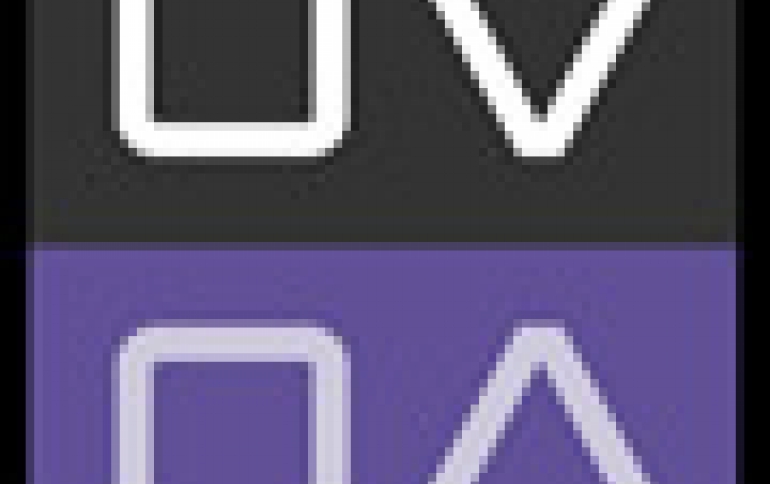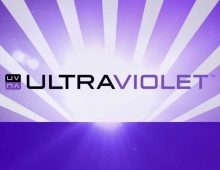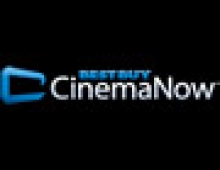
UltraViolet Accounts Rise to 800,000 in the US
UltraViolet (UV) - the studio-backed effort to recharge retail sales of films by enabling digital access to purchased movies - has achieved a milestone of 800,000 household accounts in the United States, according to IHS.
The UV initiative has made rapid progress since the first UV-enabled DVD and Blu-ray Discs (BD) were sold in October. At the Consumer Electronics Show in January, the Digital Entertainment Content Ecosystem (DECE) UV consortium disclosed that 750,000 U.S. accounts had been established. Since then, the number of UV accounts has expanded by another 50,000, IHS Screen Digest believes. Furthermore, for each account established, consumers have redeemed digital rights to 1.25 titles, meaning US consumers now have added more than 1 million films to their digital film collections via UV-enabled discs.
"One million may not sound like much compared to the 504 million movie discs sold in 2011," noted Tom Adams, principal analyst and director, U.S. media, for IHS. "However, we have projected that only 19 million digital film files were sold during the entire year of 2011 by electronic sell-through (EST) vendors like iTunes, Xbox Live and Vudu. This suggests that if UV can continue to gain momentum this year, it could encourage consumers to buy more movies. Movie purchasing represents an important priority for movie studios, which have seen their film sales dwindle in the face of growing physical and digital rentals and streaming services like Netflix."
The rental business has dramatically outperformed the purchasing segment in recent years, with the number of U.S. digital rentals amounting to more than three times the total for digital purchases in 2011.
Consumers spend more per movie watched when purchasing a film than when renting one, on top of which as much as 80 percent of consumer movie purchase spending flows through to studio top-line revenue, whether of physical discs or of digital versions. Retailers and distributors keep the majority of rental and subscription spending, rather than passing it back upstream to studios.
UV is a common file format and digital rights authentication system designed to allow a digital copy of a film or television show bought from any vendor - physical or electronic - to be played on any one of 12 devices owned by up to six members of a household, either via download or streaming from the cloud. The UV ecosystem is designed to allow users to view the content they have purchased - on disc or online - on a growing number of Internet-connected devices, including UV-enabled BD players, TVs and media tablets.
Beyond the large number of accounts achieved in less than four months, the quickening pace of commercial activity around the UV format has heartened studio execs in recent weeks. Recent developments include:
- Flixster - the Warner Bros. ' owned web site and iPad app - announced that its UV-enabled movie application will be available on Panasonic's line of Viera Connect devices, including HDTVs and Blu-ray Disc players later this year.
- Samsung, in conjunction with Flixster and Rovi, announced it would release BD players later this year that will offer consumers the option to put a copy of previously purchased non-UV-enabled BD and DVD programs into their UV collection in the cloud, for a nominal fee to be set by participating studios.
- Amazon announced that it has signed a deal with an unnamed studio to offer electronic sell-through (EST) of UV-enabled movies later this year. Paramount became the first studio to offer EST access to titles in late January, offering a high-quality slice of its catalog, including all three "Mission Impossible," "Godfather" and "Beverly Hills Cop" movies, plus the most recent "Star Trek."
- Neustar, the database-management company that developed and operates the digital-rights clearing house underlying UV, showed off its Catalyst white-label UV storefront, with which retailers can quickly put themselves into the business of providing UV streaming and downloading services.
Each of these announcements is a step in addressing one or more of the key challenges facing UV, Adams noted. These challenges include providing living room access, jumpstarting consumers' UV collections by allowing them to put existing disc-based content into the cloud and expanding retailer support for the format.
"One million may not sound like much compared to the 504 million movie discs sold in 2011," noted Tom Adams, principal analyst and director, U.S. media, for IHS. "However, we have projected that only 19 million digital film files were sold during the entire year of 2011 by electronic sell-through (EST) vendors like iTunes, Xbox Live and Vudu. This suggests that if UV can continue to gain momentum this year, it could encourage consumers to buy more movies. Movie purchasing represents an important priority for movie studios, which have seen their film sales dwindle in the face of growing physical and digital rentals and streaming services like Netflix."
The rental business has dramatically outperformed the purchasing segment in recent years, with the number of U.S. digital rentals amounting to more than three times the total for digital purchases in 2011.
Consumers spend more per movie watched when purchasing a film than when renting one, on top of which as much as 80 percent of consumer movie purchase spending flows through to studio top-line revenue, whether of physical discs or of digital versions. Retailers and distributors keep the majority of rental and subscription spending, rather than passing it back upstream to studios.
UV is a common file format and digital rights authentication system designed to allow a digital copy of a film or television show bought from any vendor - physical or electronic - to be played on any one of 12 devices owned by up to six members of a household, either via download or streaming from the cloud. The UV ecosystem is designed to allow users to view the content they have purchased - on disc or online - on a growing number of Internet-connected devices, including UV-enabled BD players, TVs and media tablets.
Beyond the large number of accounts achieved in less than four months, the quickening pace of commercial activity around the UV format has heartened studio execs in recent weeks. Recent developments include:
- Flixster - the Warner Bros. ' owned web site and iPad app - announced that its UV-enabled movie application will be available on Panasonic's line of Viera Connect devices, including HDTVs and Blu-ray Disc players later this year.
- Samsung, in conjunction with Flixster and Rovi, announced it would release BD players later this year that will offer consumers the option to put a copy of previously purchased non-UV-enabled BD and DVD programs into their UV collection in the cloud, for a nominal fee to be set by participating studios.
- Amazon announced that it has signed a deal with an unnamed studio to offer electronic sell-through (EST) of UV-enabled movies later this year. Paramount became the first studio to offer EST access to titles in late January, offering a high-quality slice of its catalog, including all three "Mission Impossible," "Godfather" and "Beverly Hills Cop" movies, plus the most recent "Star Trek."
- Neustar, the database-management company that developed and operates the digital-rights clearing house underlying UV, showed off its Catalyst white-label UV storefront, with which retailers can quickly put themselves into the business of providing UV streaming and downloading services.
Each of these announcements is a step in addressing one or more of the key challenges facing UV, Adams noted. These challenges include providing living room access, jumpstarting consumers' UV collections by allowing them to put existing disc-based content into the cloud and expanding retailer support for the format.




















